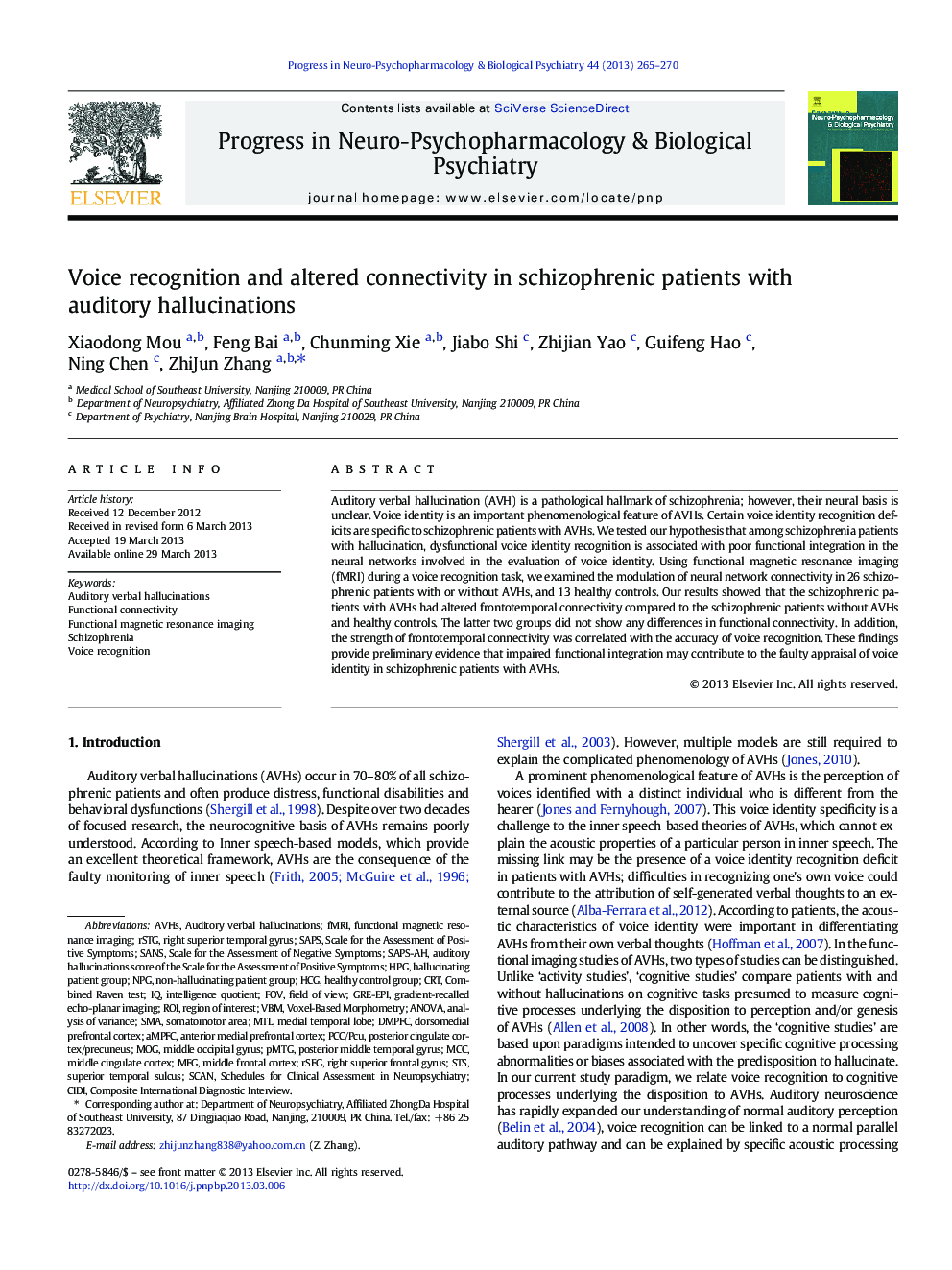| Article ID | Journal | Published Year | Pages | File Type |
|---|---|---|---|---|
| 5844625 | Progress in Neuro-Psychopharmacology and Biological Psychiatry | 2013 | 6 Pages |
â¢Auditory hallucination is a pathological hallmark of schizophrenia.â¢Voice identity is a crucial phenomenological feature of auditory hallucinations.â¢We investigate neural network underlying the voice identity recognition.â¢Hallucinators show reduced connectivity in pathway underlying voice recognition.â¢Reduced frontotemporal interactions may contribute to auditory hallucinations.
Auditory verbal hallucination (AVH) is a pathological hallmark of schizophrenia; however, their neural basis is unclear. Voice identity is an important phenomenological feature of AVHs. Certain voice identity recognition deficits are specific to schizophrenic patients with AVHs. We tested our hypothesis that among schizophrenia patients with hallucination, dysfunctional voice identity recognition is associated with poor functional integration in the neural networks involved in the evaluation of voice identity. Using functional magnetic resonance imaging (fMRI) during a voice recognition task, we examined the modulation of neural network connectivity in 26 schizophrenic patients with or without AVHs, and 13 healthy controls. Our results showed that the schizophrenic patients with AVHs had altered frontotemporal connectivity compared to the schizophrenic patients without AVHs and healthy controls. The latter two groups did not show any differences in functional connectivity. In addition, the strength of frontotemporal connectivity was correlated with the accuracy of voice recognition. These findings provide preliminary evidence that impaired functional integration may contribute to the faulty appraisal of voice identity in schizophrenic patients with AVHs.
